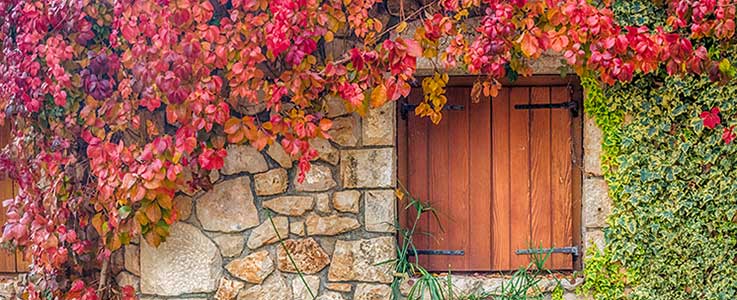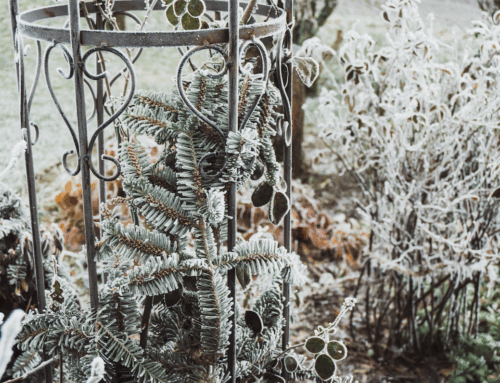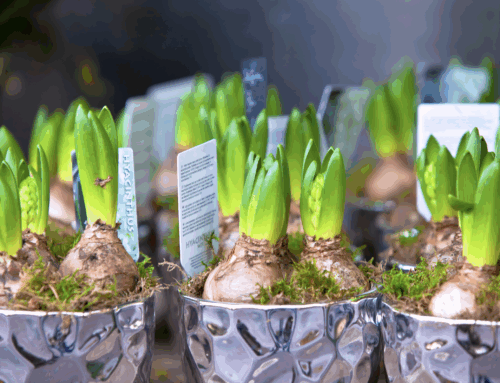Now that your greenhouse is a bit emptier, it’s the perfect time to clean and disinfect it. This will allow more light in and help to prevent pests and diseases from over-wintering.
If you haven’t done so already, remove any greenhouse shading to allow as much light in as possible.
Protect half-hardy plants with fleece or bring them into a frost-free greenhouse.
Sweep up any fallen leaves that harbour fungal spores and provide ideal hiding places for slugs and snails. Use them to make leaf mould for the garden.
Lift and divide any overcrowded herbaceous perennials whilst the soil is still warm.
Lift dahlia tubers, begonia tubers and gladioli corms to store over the winter months. Remove any dead foliage before storing them.
Take hardwood cuttings from deciduous shrubs, it’s the perfect time to do this.
Prune climbing roses when they have finished flowering and tie in the stems to prevent wind damage.
Make sure you collect up fallen rose leaves, as this will help to prevent diseases such as black spot from over-wintering. Don’t compost the leaves as this can spread diseases, put them in your green bin.
Cut back perennial plants that have died down.
After tidying borders, mulch with bark chips, well-rotted manure, old compost from patio pots or leaf mould to insulate plant roots for the winter and keep weed growth in check.
October is a perfect time to plant hedges and trees and move shrubs around in your garden. They will have time to bed in before spring arrives.
Move tender plants into the greenhouse or cold frame to protect them from early frosts. Make sure that there is space between them to keep them well ventilated and reduce the risk of disease.
Clear up fallen leaves regularly to allow light to the grass. A last mowing can be made this month before leaving your lawn for the winter.
Recut any lawn edges to give a tidy finish. Install lawn edging to make future maintenance easier. Aerate your lawn with a garden fork to avoid waterlogging and compaction over winter.
Create compost bins for collecting fallen leaves and dead plant material for leaf mould and compost, however do not include any diseased leaves. Oak, alder and hornbeam will rot down in a year, but beech, sycamore, horse chestnut and sweet chestnut take a couple of years to compost.
Continue to encourage birds into your garden – they need extra help in the cold winter months and they’re fun to watch from the warmth of your living room!





